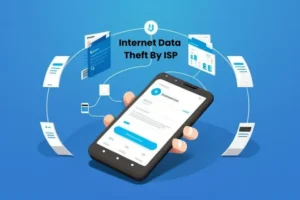The Deep Impact of Customer Service Gaps on Customers
Customer service is a very complex and responsibility-filled domain. Some companies, whether knowingly or unknowingly, fail to provide post-transaction customer service. In this article, we will explore such customer service gaps that have a deep and lasting impact on customers. These customer service gaps occur in situations where customers, despite wanting to voice their concerns, either cannot speak up, or when they do, management fails to listen or address their issues.
The Gap in Customer Service by Health Insurance Companies
Health insurance companies sell policies to customers when they are most in need, often providing coverage for an entire year in exchange for a premium. During the active phase of the policy, however, these companies rarely provide direct guidance or support over the phone, leaving customers to navigate any issues or questions on their own.
Yet, when it comes time for policy renewal, these same companies suddenly become very proactive, bombarding customers with phone calls and reminders. The question is: Why do they neglect to offer this level of engagement during the active period of the policy?

The Lack of Prescriptions in Homeopathy: A Critical Service Gap
In some countries, homeopathy practitioners do not provide prescriptions to their regular patients. Unlike allopathy or even Ayurvedic doctors who consistently update patient case files during each session, homeopathy doctors often do not issue prescriptions. This reflects a significant gap in the service industry. Patients place their trust in the doctor and consume the granules or dilutions given to them without knowing the specific details.
It is the responsibility of doctors and medical associations to ensure that patients who trust homeopathy receive a case history along with a prescription for every medication they purchase from the clinic. In today’s times, homeopathy treatments are quite expensive. Therefore, it is imperative for homeopathy doctors and their staff to maintain updated patient case histories and issue prescriptions for every visit.
Patients must also understand that it is their right to demand and obtain a prescription. This service gap is significant and could have serious implications for the patient’s health.
Some Internet Service Providers and Their Deceptive Practices
Many internet data providers cleverly steal the leftover data from customers. When these services initially offer free data to attract customers, they entice users to sign up. However, once customers become loyal to these providers, these companies fail to carry over unused data when the subscription ends. Data that’s left, such as 1GB or even less, gets “eaten up” without any carryover.
To understand this issue better, consider the following example: Suppose you buy a 3-month plan that provides 2GB of high-speed data per day. If you use the plan not just for your mobile but also for your TV, you will need to purchase an add-on data plan to ensure your existing validity is maintained and that you can consume more data. However, as the 3-month plan nears its end, if you have, say, 2GB or 4GB of leftover data, some companies will not transfer this unused data to your new plan, which is highly unfair. This is clearly data theft and one of the biggest customer service gaps.
Customers are often unable to do anything about this situation because data is both their source of information and entertainment. It’s not easy for a customer to switch to another service provider, making it even more frustrating.

Customer Service Gap Caused by Unauthorized Auto-Renewal Charges
Auto-renewal scams have become a significant headache for customers these days. Whenever a customer purchases a service and is required to provide their card details to the seller, it often becomes the root cause of such scams. While some companies, such as VPN providers and hosting services, deliver excellent service, others continue to charge customers even after their plan has expired and the auto-renewal option has been turned off.
This is a very serious issue and represents a significant service gap. After receiving value from a service, customers shouldn’t have to face such fraudulent practices. Moreover, this not only damages the trust between customers and the seller in question but also adversely affects other businesses that are diligently working to maintain their integrity.
Exploitation of Trust: A Critical Service Gap in Banking
In nationalized banks, most account holders are pensioners who are senior citizens. These banks often open fixed deposit (FD) accounts in the names of these pensioners without their knowledge, linking them to their pension accounts. This practice constitutes a major fraud, especially against elderly customers who, after submitting their life certificates, usually avoid traveling and spend most of their time at home especially if, under a medical management.
A pensioner, who has served the government diligently and relies on the pension received after retirement to sustain themselves, falls victim to such deceit. This is not just a significant service gap but also a grave offense.
Conclusion
These five gaps, though not visible, are significant and closely tied to the necessities of customers. The health and insurance sectors are deeply rooted in public trust. Transparency in these sectors would not only boost companies’ revenue but also positively impact the overall economy.
Ignoring such gaps or making no effort to address them constitutes an unethical practice that must be stopped. It is the responsibility of governments to ensure that, just as they are promoting online and offline businesses, they also establish fast-track systems to safeguard customer interests effectively.
